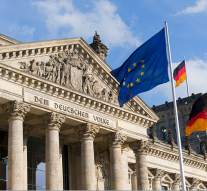
Elections in Germany and Europe after Merkel
Employment and Social Affairs 3 October 2021Estimated time of reading: ~ 4 minutes
The German Social Democrats’s (SPD) victory in the federal election on 26 September marks the end of over 15 years of Christian Democrats ruling, and namely of Angela Merkel as chancellor. This will inevitably be a big change also for the leadership equilibrium in the European Union at least in the short term. Merkel came to power in 2005, making her one of the longest-serving chancellors in the history of Germany. Whoever will replace Merkel as chancellor will have a huge bearing on the European Union’s future political direction. Merkel’s pragmatic and calm leadership was an important asset for the EU in times of crises and, thanks to her negotiation skills, gave a significant contribution in solving problems.
Thus Merkel’s departure as chancellor will create a leadership vacuum, that could be filled in the near future maybe by France and Italy. But even France is heading to presidential election in 2022, while Italian premier Mario Draghi – although much appreciated – could be chosen to replace Sergio Mattarella as head of State. An eventual power vacuum in Berlin will in any case be filled by a hyper-active, ambitious Commission run by another German: president Ursula von der Leyen. Furthermore in the long run Germany will have to play its traditional role in Europe, and this could be done better forming a strong government in Berlin.
After the electoral results it seems that the new chancellor will be Olaf Scholz, the leader of SPD and former Finance Minister in the outgoing government. But the fourth Merkel’s government was formed by a coalition including Christian Democrats (CDU/CSU) and the German Social Democrats (SPD), while Scholz – although being vice chancellor in the last Merkel government – will be engaged in talks for a unique three parties coalition with Liberal Democratic Party (FDP) and Green.
The electoral results saw that SPD has defeated outgoing chancellor Angela Merkel’s CDU/CSU, with the Greens coming in a distant third place and FDP far behind.
Said that, Green and FDP are now indispensable to form a new government. Chancellor candidate of SpD Scholz has reiterated his confidence in the formation of a coalition government with the Greens and FDP. As another alternative coalition would be pursued by Cdu’s candidate chancellor Armin Laschet just in case Scholz should fail in his first attempt. The ball is now in SPD’s court and according to Carsten Linnemann, a deputy of the Christian Democratic Union (CDU) in the Bundestag, the probability that a coalition among SPD, the Greens and FDP “is not only clear, it is also very high “. “Our success will inspire other social democratic parties in Europe and maybe beyond,” Scholz told Der Spiegel. According to Scholz, an executive formed by his own party with ecologists and liberal democrats must have the objective of “getting involved with the pretense of being confirmed in the next elections” of the Bundestag. “This agreement” will only work if all the coalition partners come together with their ideas”, he explained.
Finally, it could be highlighted that Germans voted for careful change, strengthening the political center rather than the extremes. Neither coalition option is likely to result in major changes to Germany’s foreign and security policy, and both FDP and the Greens could push for a harder approach toward Russia and China and deepen intra-EU cooperation on issue such as defence and energy. It seems indisputable that the EU needs a strong government in Germany. “After this historic crisis, there is no time to lose: Europe needs a strong and reliable partner in Berlin to continue our common work for a social and green recovery,” said European Parliament President David Sassoli.
Written by: Valerio Palombaro
Submitted on: 01.10.2021.


